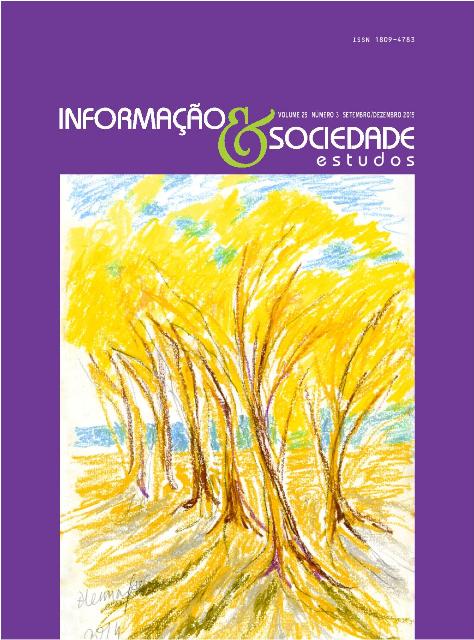Brazilian Model of Library and Information Studies in the Bachelor's level
Palavras-chave:
LIS education, Library and information science undergraduate studies, Curiculum development, content selection, BrazilResumo
The article is aimed to improve the academic education in the field of library and information science in Brazil by structuring the curricular reasoning that shapes the contents of undergraduate academic programs. It is the second article of a group of two articles that resulted from a study conducted in Brazil in 2011– 2014. The first article presents a universal model1 of LIS programs (ZINS; SANTOS, 2015, in press). This article presents the Brazilian model2. This part of the research was composed of two methodological phases. The first phase was a systematic Critical Delphi study with 21 leading information science scholars from Brazil. The second phase was an unsystematic formative evaluation of the content categories. The evaluation was based on a Grounded theory study of 13 academic programs in Brazil. The study resulted in a model2 that sets the guiding principles for developing undergraduate programs in Brazil. The model is actually composed of two complementary models; a systematic four step developing process (model2.1) and a structured plan of 288 content categories (model2.2). The study improves the development and evaluation of LIS programs in Brazil by providing a structured model for content selection. The study stresses the key role of the curricular reasoning for improving LIS education in Brazil; a curricular reasoning that is grounded in the Brazilian milieu.Downloads
Não há dados estatísticos.
Downloads
Publicado
2015-12-28
Como Citar
Zins, C., & Santos, P. L. V. A. da C. (2015). Brazilian Model of Library and Information Studies in the Bachelor’s level. Informação &Amp; Sociedade, 25(3), 185–203. Recuperado de https://periodicos.ufpb.br/ojs/index.php/ies/article/view/26761
Edição
Seção
Relatos de Pesquisa
Licença
Os originais aceitos e publicados tornam-se propriedade de INFORMAÇÃO & SOCIEDADE, sendo vedada sua reprodução total ou parcial, sem a devida autorização da Comissão Editorial, exceto para uso de estudo e pesquisa.






